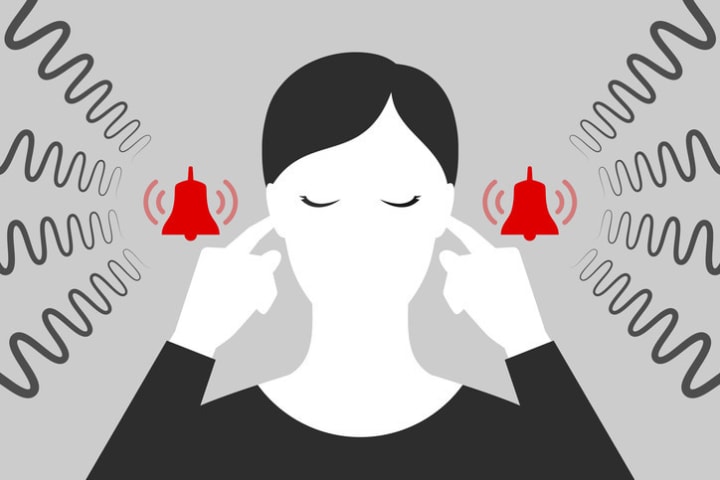how to treat tinnitus caused by stress | Tinnitus and anxiety: How to manage anxiety for tinnitus relief
Click here to learn more

Tinnitus is a common condition characterized by the perception of sound in the absence of an external sound source. It can manifest as a ringing, buzzing, hissing, or other types of sound in the ears or head. Tinnitus affects approximately 15% to 20% of the population, and for some individuals, it can cause significant distress and interfere with daily life.
Anxiety is a common co-occurring condition with tinnitus. Anxiety can be a normal response to a stressful situation or a chronic condition that interferes with daily functioning. Anxiety can make tinnitus worse, and tinnitus can make anxiety worse, creating a vicious cycle that can be difficult to break.
In this article, we will discuss the connection between tinnitus and anxiety, and explore strategies for managing anxiety to help alleviate tinnitus symptoms.
1. Understanding the Connection Between Tinnitus and Anxiety
Tinnitus and anxiety often go hand-in-hand. People with tinnitus may experience anxiety because they are unable to escape the constant sound in their ears. This anxiety can become a chronic condition, and can even exacerbate the tinnitus symptoms.
On the other hand, people with anxiety disorders may be more prone to tinnitus due to increased levels of stress and tension in the body. This can lead to increased sensitivity to sounds, including the sounds of tinnitus.
The relationship between tinnitus and anxiety can also be explained by the way the brain processes sensory information. When the brain is under stress, it can become hyperactive and more sensitive to sensory input. This can cause the brain to amplify the sound of tinnitus, making it more noticeable and difficult to ignore.
2. Strategies for Managing Anxiety for Tinnitus Relief
While there is no cure for tinnitus, managing anxiety can help reduce the severity of tinnitus symptoms. Below are some strategies that may be helpful for managing anxiety and tinnitus:
2.1 Cognitive Behavioral Therapy (CBT)
Cognitive Behavioral Therapy (CBT) is a type of talk therapy that is often used to treat anxiety and other mental health conditions. CBT helps people identify negative thought patterns and behaviors, and provides tools to help them manage their anxiety.
In the context of tinnitus, CBT can help people reframe their thoughts about tinnitus and develop coping mechanisms to reduce the impact of the condition on their daily lives. CBT has been shown to be effective in reducing anxiety and improving quality of life for people with tinnitus.
2.2 Mindfulness Meditation
Mindfulness meditation involves focusing on the present moment and accepting one's thoughts and feelings without judgment. This can help reduce anxiety and stress, and may also help reduce the severity of tinnitus symptoms.
Several studies have found that mindfulness meditation can be an effective treatment for tinnitus, helping to reduce the intensity and intrusiveness of the sound. Mindfulness meditation may also help improve sleep quality and reduce feelings of anxiety and depression.
2.3 Exercise
Exercise is a powerful tool for managing anxiety and improving overall mental health. Exercise can help reduce stress and tension in the body, and can also increase the production of endorphins, which are natural mood boosters.
Regular exercise has been shown to be effective in reducing anxiety and improving quality of life for people with tinnitus. Exercise can also help improve sleep quality, which is important for managing tinnitus symptoms.
2.4 Breathing Techniques
Breathing techniques, such as deep breathing and diaphragmatic breathing, can help reduce anxiety and promote relaxation. These techniques involve slow, deep breaths that help activate the body's relaxation response.
In the context of tinnitus, breathing techniques can help reduce stress and tension in the body, which can help reduce the severity of tinnitus symptoms. Breathing techniques can be practiced anytime and anywhere, making them a convenient tool for managing anxiety and tinnitus.
Practice relaxation techniques
Relaxation techniques can be helpful for managing anxiety and stress, which can in turn alleviate tinnitus symptoms. There are many different techniques to choose from, including:
Meditation: This involves sitting quietly and focusing your attention on your breath or a mantra. There are many different types of meditation, so experiment with different techniques to find what works for you.
Yoga: Yoga is a physical and mental practice that involves breathing exercises, postures, and meditation. It can be a great way to reduce stress and anxiety.
Progressive muscle relaxation: This involves tensing and then relaxing different muscle groups in your body. It can help to release tension and promote relaxation.
Mindfulness: Mindfulness involves paying attention to the present moment without judgment. This can help to reduce anxiety and promote relaxation.
Deep breathing: Taking slow, deep breaths can help to calm your body and mind. Try inhaling deeply through your nose and exhaling slowly through your mouth.
Seek professional help
If you're struggling with anxiety or other mental health issues, it's important to seek professional help. A therapist or counselor can help you to develop coping strategies and manage your symptoms. They may also be able to recommend other treatments, such as medication.
In some cases, tinnitus may be a symptom of a more serious underlying condition, such as a tumor or aneurysm. If you experience sudden or severe tinnitus, or if it's accompanied by other symptoms such as dizziness or loss of balance, it's important to seek medical attention right away.
Conclusion
Tinnitus can be a frustrating and debilitating condition, but there are many treatments and coping strategies available. By working with your healthcare provider and trying different approaches, you can find relief from your symptoms and improve your quality of life. Whether you try relaxation techniques, sound therapy, or medication, it's important to approach tinnitus treatment with an open mind and a willingness to experiment until you find what works best for you.
So lets's get this sorted out!
Say goodbye to tinnitus and hello to peace of mind! Try our 100% natural blend support today and start experiencing the relief you deserve. Don't let tinnitus control your life any longer - take action now and discover the power of nature."
Click Here to Try our 100% natural blend support today

Affiliate Disclosure:
There are links on this site that can be defined as affiliate links. This means that I may receive a small commission. If you purchase something through links provided on this website.
About the Creator
Your GUIDE
Say goodbye to tinnitus and hello to peace of mind! Try our 100% natural blend support today and start experiencing the relief you deserve. Don't let tinnitus control your life any longer - take action now and discover the power of nature
Enjoyed the story? Support the Creator.
Subscribe for free to receive all their stories in your feed. You could also pledge your support or give them a one-off tip, letting them know you appreciate their work.






Comments
There are no comments for this story
Be the first to respond and start the conversation.